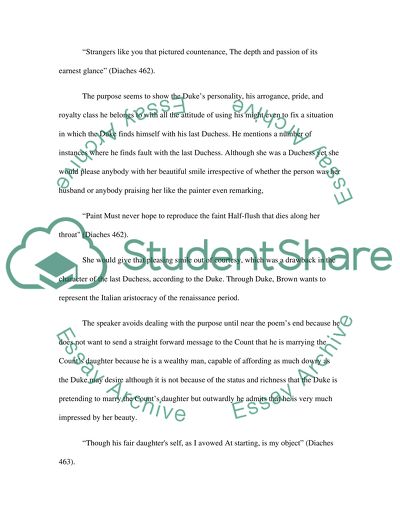Cite this document
(“What Attitude does reflect the poem The Last Duchess, composed by Literature review”, n.d.)
Retrieved de https://studentshare.org/literature/1427055-what-attitude-does-this-poem-reflect
Retrieved de https://studentshare.org/literature/1427055-what-attitude-does-this-poem-reflect
(What Attitude Does Reflect the Poem The Last Duchess, Composed by Literature Review)
https://studentshare.org/literature/1427055-what-attitude-does-this-poem-reflect.
https://studentshare.org/literature/1427055-what-attitude-does-this-poem-reflect.
“What Attitude Does Reflect the Poem The Last Duchess, Composed by Literature Review”, n.d. https://studentshare.org/literature/1427055-what-attitude-does-this-poem-reflect.


